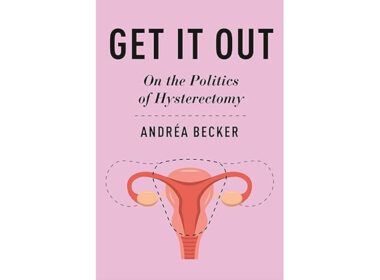Late last year, UK-based The Independent reported that according to data from the largest family law firm in Britain, “85 per cent said their marriage or relationship had been impacted by the contraception’s side effects.” For those paying attention, the link between birth control and marital problems and divorce should come as no surprise. Approved by the FDA for use as a contraceptive in 1960, the Pill began eliciting such obvious behavioral changes in the women who took it, that doctors had already begun to take notice of the phenomenon by the late 1960s [1]. They also observed how birth control use affected women’s relationships [1]. More recently, doctors have explored how the synthetic steroids in birth control manipulate your body chemistry in a way that alters the physical attraction you feel towards your partner.
A wide variety of studies have examined nearly every aspect of the physical and psychological changes connected to birth control. However, one new study shines a light into a corner rarely exposed. What it reveals should change our perspective on the association between birth control and relationship problems, including divorce.
A new study examines the connection between birth control use and likelihood of divorce
To varying degrees, many previous dives into the connection between birth control use and relationship problems blamed women. The assumption seemed to be that behavioral or relational problems arose because of “out-of-control” female hormones. Frustratingly, even today, women’s experience of medication-induced behavioral or health problems is sometimes chalked up to “women acting crazy” (albeit dressed up in different language).
That’s fortunately not the case with a new study published in the Journal for Divorce and Remarriage. [2] Based on a sample size of over 5,300 ever-married women, it considered divorce rates relative to a multitude of factors. These included race, economic status, education level, age at time of marriage, and ever-use of different birth control types. This wasn’t the first study to demonstrate the strain an unwanted pregnancy could place on a marriage, but it was unique in its focus on the use of various types of birth control as a factor in divorce.
Study results
The results were surprising. The type of birth control the couples primarily used appeared to play a significant role in divorce rates. The results weren’t simply correlated to pregnancy prevention effectiveness. In other words, it wasn’t true that the method with the fewest expected unintended pregnancies (sterilization) had the lowest association with divorce.
The researchers found:
- Women who had ever taken hormonal oral contraceptives (like the Pill) divorced at a rate 54% above the study average.
- Women with tubal ligations divorced at a rate 78% above average.
- When the husband had a vasectomy, married couples were more than twice as likely to divorce.
- The divorce rate for couples who had ever used condoms was 67% above the average.
- Women who actively used Natural Family Planning were 47% LESS likely to divorce than the average. If you considered women who had ever used NFP, that group was still 31% less likely to divorce.
The biggest surprise from the study results
To be clear, divorce rates amongst, for example, women who had ever taken the Pill were not 54% higher than the national average. They were 54% higher than the study average. Divorce rates amongst ever-contraception users varied, but were about in line with the national average. This makes sense given that the average American woman of reproductive age is taking some type of birth control. The really surprising number is how much lower divorce rates are for women and couples who currently or ever used NFP.
While it may be tempting to chalk up the study results to the emotional or behavioral changes many women experience on hormonal birth control, the odds ratio of divorce among couples who reported non-hormonal methods like vasectomies or condom use pointed to something more going on than just “female hormones gone awry.” And, with the highest divorce rates being associated with sterilization (which has the highest pregnancy prevention rate of all birth control methods) in both men and women, the study may have also provided a hint as to what that “something more” could be.
But first, some transparency for the skeptics
This might be a good place to offer my personal disclaimer. My goal is to always be as transparent as possible. That’s why I started my book, In the Name of the Pill, with the proclamation that I’m a bald, middle-aged, Catholic man from Texas. I wanted readers to know exactly who I was from the outset.
The assumption was that my being Catholic might raise an eyebrow. And, obviously, I don’t have an M.D. after my name. Might readers question why I care so much about the subject of birth control, and the myriad ways it affects girls, women, and couples? My hope was that my transparency would encourage skeptical readers to seek out the hundreds of studies I reference throughout the book, and see for themselves.
Science piqued my curiosity about the dangers of birth control–not my faith–and that’s typically the perspective from which I write. However, the recent Journal of Divorce and Remarriage study inspired some introspection on my part that I believe warrants some faith-related discussion. I believe this reflection may be of interest even to those of you who are not religious. I hope you will indulge me.
With birth control, spouses say “I give you some, but not all, of me” to each other
When you convert to Catholicism, the Church asks you to attend a series of classes over several months known as the Order of Christian Initiation for Adults (OCIA). OCIA was previously known as the Rite of Christian Initiation for Adults (RCIA). My wife and I joined the Church in 2005. We vividly recall the RCIA class where we discussed contraception.
The instructor said, “When you get married, you say, ‘I’m giving you all of me.’ But when you introduce contraception (or sterilization) into that arrangement, you create an addendum that says, ‘except this part.’”
As a class, we discussed how the attempt to separate the unitive (bonding) and procreative (openness to babies) aspects from the marital act could create an unintentional rift in a marriage. We talked about the mixed messages contraceptive use sends to both partners. On a subconscious level, perhaps contraceptive use indicates a finite limit to your love and commitment–an unwillingness to fully commit.
With contraception or sterilization, you not only withhold a major part of yourself (your fertility) from your spouse. You also show that you’re willing to gamble on some pretty serious consequences and side effects in order to avoid the deeper commitment of possibly having a child. You may think I’m flirting with hyperbole. I hope this conveys how the line of thinking inspired by contraception, even at a subconscious level, creates unspeakable barriers in a relationship.
Fertility awareness use in marriage sends a different message than birth control does
Conversely, couples who learn fertility awareness, or Natural Family Planning (NFP, as it is more typically known in religious circles), pave a foundation for better relationships. This more solid foundation starts with the woman herself. By practicing NFP, she becomes more in-tune with her cycles and her body’s overall natural functions.
In relationships, NFP encourages discussions between partners centered around wants, needs, and expectations. In short, it nurtures an actual partnership rather than placing the entire family planning burden on one spouse.
Couples who agree they have good reasons for avoiding pregnancy make the sacrifice to avoid sex on fertile days. This can certainly be difficult in the heat of the moment. It’s a sacrifice the couple makes together, for the good of the other. Again, it also fosters important conversations. As a consequence, couples may occasionally decide that a pregnancy wouldn’t be the worst thing in the world. Either way, this is a much more positive, healthy, and symbiotic approach to family planning and reproductive health.
How fertility awareness protects marriages
Even before our conversion to Catholicism, my wife and I were no strangers to discussing birth control and its adverse effects. After that OCIA class, we had another serious discussion about whether it was also time to stop condom use.
I’ll be honest, I was skeptical whether eliminating condoms would make much difference in our relationship. After all, it wasn’t like either of us was ingesting a drug or contemplating major surgery. We had been happily married for over a decade at that point. It didn’t feel like condoms were interfering. Nonetheless, given our age, I deduced there were probably more fertile days behind us than ahead of us. I agreed to stop using condoms and simply try to avoid fertile days. Admittedly, that’s a pretty lame way to embrace Church teaching. But, I was still on a journey.
Previously, I had been content with not having any more children. I was shocked how quickly my entire perspective changed, not just regarding children, but regarding all of life. And, that is not flirting with hyperbole.
Fertility awareness or NFP use prompts openness to life
I suddenly realized the condoms had definitely been interfering. I was no longer preoccupied with not wanting any more kids. Though we weren’t yet familiar with NFP, I experienced what people in NFP circles refer to as “being open to life.” We ended up having two daughters, and I can’t imagine my life without them. Sincerely, I had no idea how deeply I had been depriving myself, not to mention my wife, through our reliance on condoms and the accompanying obsession with avoiding pregnancy.
There’s also no denying that eliminating condoms brought us closer together. It’s difficult to describe what changed. The best I can come up with is that our love became much more effervescent. We’ve now been married 30 years, and that feeling continues to grow.
Does fertility awareness use in marriage mean “we accept all the babies”?
I can recall how my brain worked during our contraceptive days, so I want to clarify something. The term “open to life” doesn’t mean resigning oneself to the fact that you’re going to get pregnant because you aren’t using birth control. Studies have shown that, when properly taught and used, NFP methods can be as effective as the most popular contraceptive methods [3].
NFP also acknowledges this reality: sex can lead to babies. And, both partners are responsible for their sexual behaviors. This is perhaps why couples who use NFP tend to handle the “shock” of a surprise pregnancy better than those couples who contracept. They know where babies come from.
But women and couples who use contraception have the explicit expectation that a baby will not come from sex. The Guttmacher Institute revealed that over half of all women seeking abortions report that they were using birth control at the time they got pregnant. This flies in the face of the popular (and false) belief that couples who use birth control are always “protected” against pregnancy.
A real life story of the connection between birth control use and relationship problems
The focus of the Journal for Divorce and Remarriage study and much of this article has been on the connection between birth control’s impact on marriages. But my mind often returns to a young woman who shared with me how birth control impacted her engagement story.
At the time she spoke with me, this young woman had recently stopped taking birth control. She said it made her feel like she wasn’t truly living. She described the way she felt on birth control as floating about, detached–almost like she was a third party to her own life. After stopping the Pill, she started to feel more like herself again.
Of course, she was happy to be returning to normal. But she wished she could go back in time and relive the moment her fiancé proposed to her. She was elated when he knelt down and took her hand, but the fog she was living in wouldn’t allow her to express it properly.
Of course, her boyfriend/fiancé had no way of reading the excited, thrilled, numb, detached enigma that was playing out in her head. He was left with his own puzzled stew of thoughts to work through.
They are happily engaged and have subsequently been able to discuss the cloud she was living under. But, she will likely always feel like she was robbed of that moment that so many women dream about.
In the end, the Journal of Divorce and Remarriage study demonstrates that this engaged couple are some of the fortunate ones. They have improved their odds of remaining together forever as soulmates by their decision to forego birth control. But, I can’t help but wonder how many soulmates continue to suffer that schism before they even have the chance to walk down the aisle.
References:
[1] Sen. Gaylord Nelson (1970): Competitive Problems in the Drug Industry, U.S. Congressional Hearings, Part 16, Page 6488. [2] Michael D. Manhart & Richard J. Fehring (2023): The Association of Family Planning Methods With the Odds of Divorce Among Women in the 2015–2019 National Survey of Family Growth, Journal of Divorce & Remarriage, DOI: 10.1080/10502556.2023.2179837 [3] European Society for Human Reproduction and Embryology. “Natural Family Planning Method As Effective As Contraceptive Pill, New Research Finds.” ScienceDaily. ScienceDaily, 21 February 2007. <www.sciencedaily.com/releases/2007/02/070221065200.htmAdditional Reading:
A vasectomy can’t repair a broken love life—and it might cut a relationship short
Is natural family planning unnatural for relationships?








I am a Catholic grandmother and have been married to my husband for 43 years. NFP is the avenue of enlightenment to GOD’S TRUE PLAN for married couples and marital health and spiritual wellness. Being a child of the 1960’s and 1970’s I experienced the lies of the sexual revolution and came HOME TO THE TRUTH.
Loved reading this author’s perspective from the male point of view.
Marikay Freedman